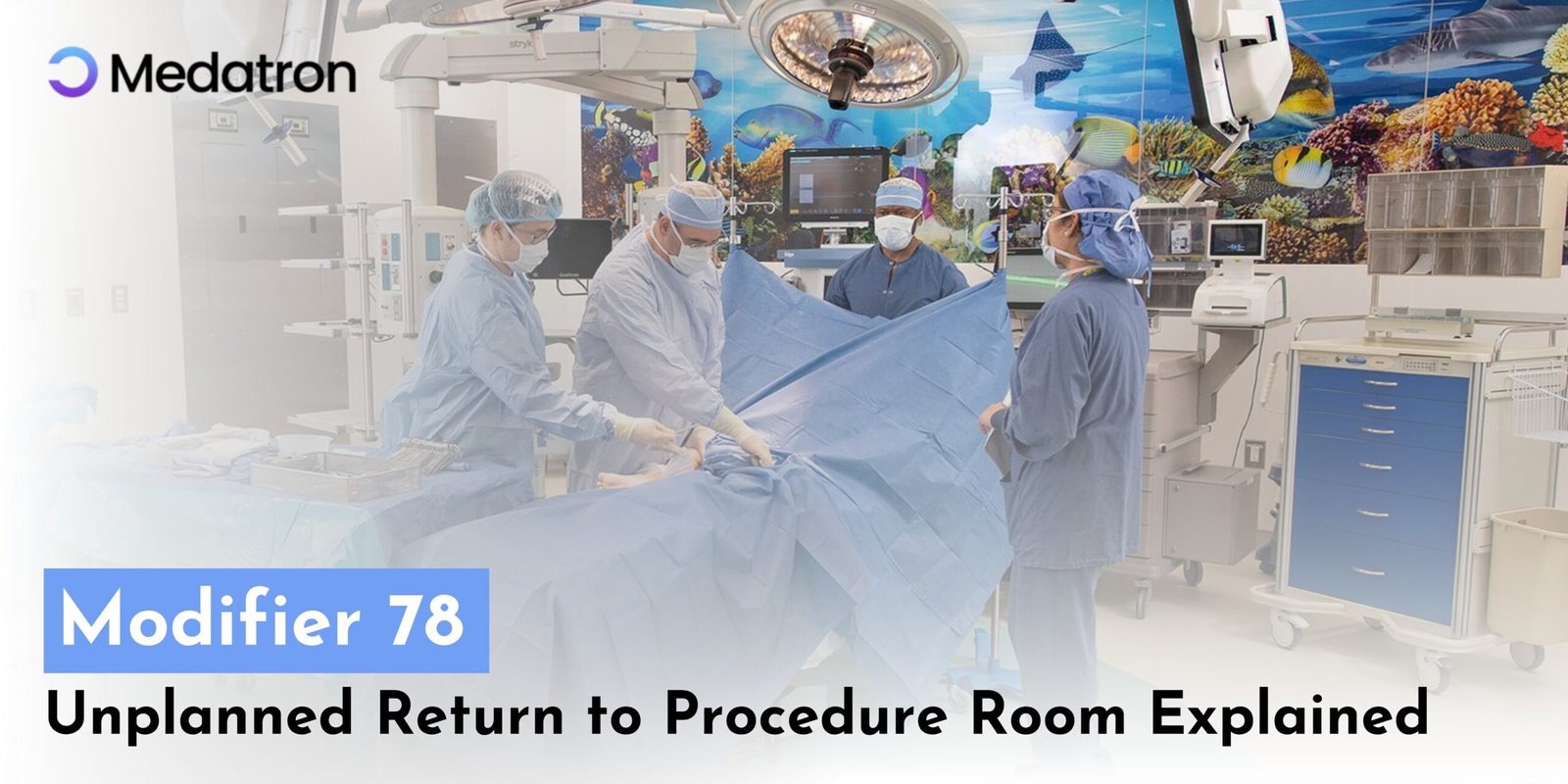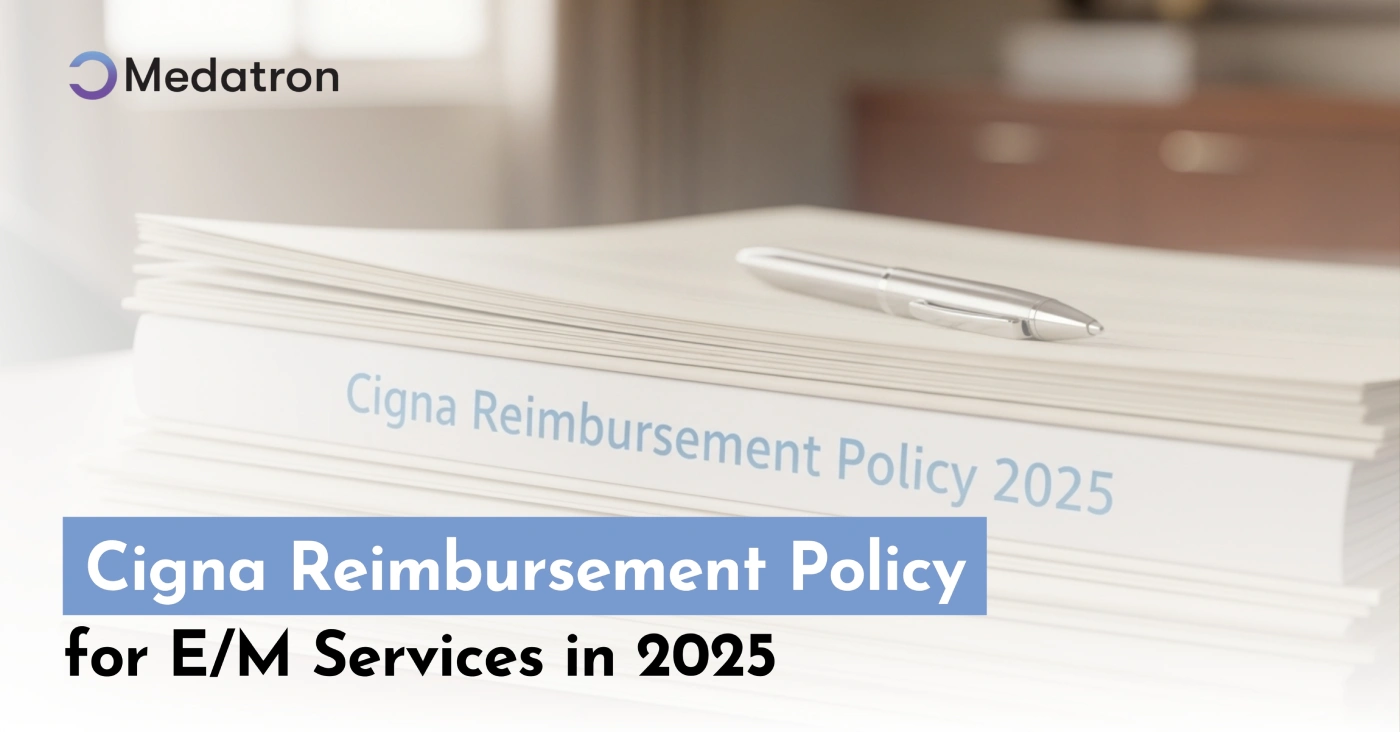Modifier 78 is an absolute must in medical billing. It indicates that the patient returned to the operating/procedure room for a procedure directly related to the same procedure during the global period of the initial surgery. Thus, one can easily see that using the modifier will accurately reflect claims and proper remittance. Let’s discuss its purpose, guidelines, and some common scenarios.
What is Modifier 78?
Modifier 78 is added to an existing procedure code when an unexpected follow-up procedure occurs in the operating/procedure room because of complications or a related issue stemming from another surgery. With this, the payer clearly understands that it is not a new surgical service but a continuation of related care to the original procedure. Key Characteristics of it are as follows:
- Unplanned Procedure: The follow-up procedure was not planned during the original surgery.
- Related to the Initial Surgery: The second procedure addresses complications or issues directly linked to the initial surgery.
- Performed During the Global Period: The unplanned procedure occurs within the global surgical period of the initial operation.
- In an Operating/Procedure Room: The follow-up must occur in a qualified facility, such as an operating room, endoscopy suite, or cardiac catheterization lab.
Global Surgical Period and Modifier 78
The global period is the time frame post-surgery, during which follow-up care is included in the payment for the initial procedure. Standard global periods are 0, 10, or 90 days. Modifier 78 allows providers to bill for additional work during this period, indicating that the procedure was related to the initial surgery and required separate attention.
Reimbursement Implications
When it is used, reimbursement is typically adjusted. The payer may cover only the intraoperative portion of the second procedure, excluding pre- and postoperative work, as these are considered part of the initial procedure’s global surgical package.
Examples of Modifier 78 in Action
- Postoperative hemorrhage: A patient undergoes appendectomy and later hemorrhages in the massive proportion that requires surgical interventions done in the operating theater.
- Infection That Requires Drainage: In the aftermath of knee arthroplasty, infection leads the patient to necessitate an unplanned return to the operating room for incision and drainage.
- Hardware Malposition: A patient undergoing spinal surgery requires another surgical intervention to correct or change the hardware malfunctioning.
How to Attach Modifier 78 Correctly
- Identify the Appropriate CPT Code: Use the code for the follow-up procedure performed.
- Attach Modifier 78: Add the modifier to indicate the unplanned, related nature of the procedure.
- Include Detailed Documentation: Ensure the operative report and medical records clearly outline the reason for the return to the operating room and its relation to the initial surgery.
Common Mistakes to Avoid
- Planned Procedures: It should not be applied if the procedure to follow was planned and scheduled during the time of the original surgery.
- Lack of Documentation of the Relationship with the Primary Surgery: Insufficient documentation may result in a claim being denied or delayed.
- Using it Outside the Global Period: Ensure the follow-up procedure occurs within the global period of the initial surgery.
How Medatron Streamlines Modifier 78
Medatron simplifies the use of Modifier 78 by integrating automated checks and detailed prompts within its billing software. It identifies eligible procedures and global periods, ensuring it is correctly appended to claims. Additionally, Medatron’s system provides templates for documentation, reducing errors and speeding up claim submissions, ultimately enhancing compliance and reimbursement efficiency.
Conclusion
It is essential for medical billing as it can capture providers to capture the additional work required to control complications or problems related to initial surgery. It mandates a clear understanding of proper guidelines and full documentation usage. Mastering the appropriate application of Modifier 78 by healthcare providers ensures accurate reimbursement and adherence to billing standards.
Do you have any questions about Modifier 78 or the other modifiers related to medical billing? Leave a comment below.
FAQs
Modifier 78 refers to an unplanned return to the operating/procedure room after the onset of the global period when the patient has a complication or issue.
No, it is just for unplanned procedures, as the follow-ups are performed under a different modifier only.
Reimbursement will usually be confined to the intraoperative time of service since care before and after surgery will be packaged in the primary surgery.
The surgical report and all medical histories must clearly note the justification for returning the patient to the operating room and how the return was related to the original surgery.
The procedure must occur in an approved operating or procedure room, such as an operating suite, endoscopy suite, or cardiac catheterization lab. The procedure must take place in a qualified operating or procedure room, such as an operating suite, endoscopy suite, or cardiac catheterization lab.







